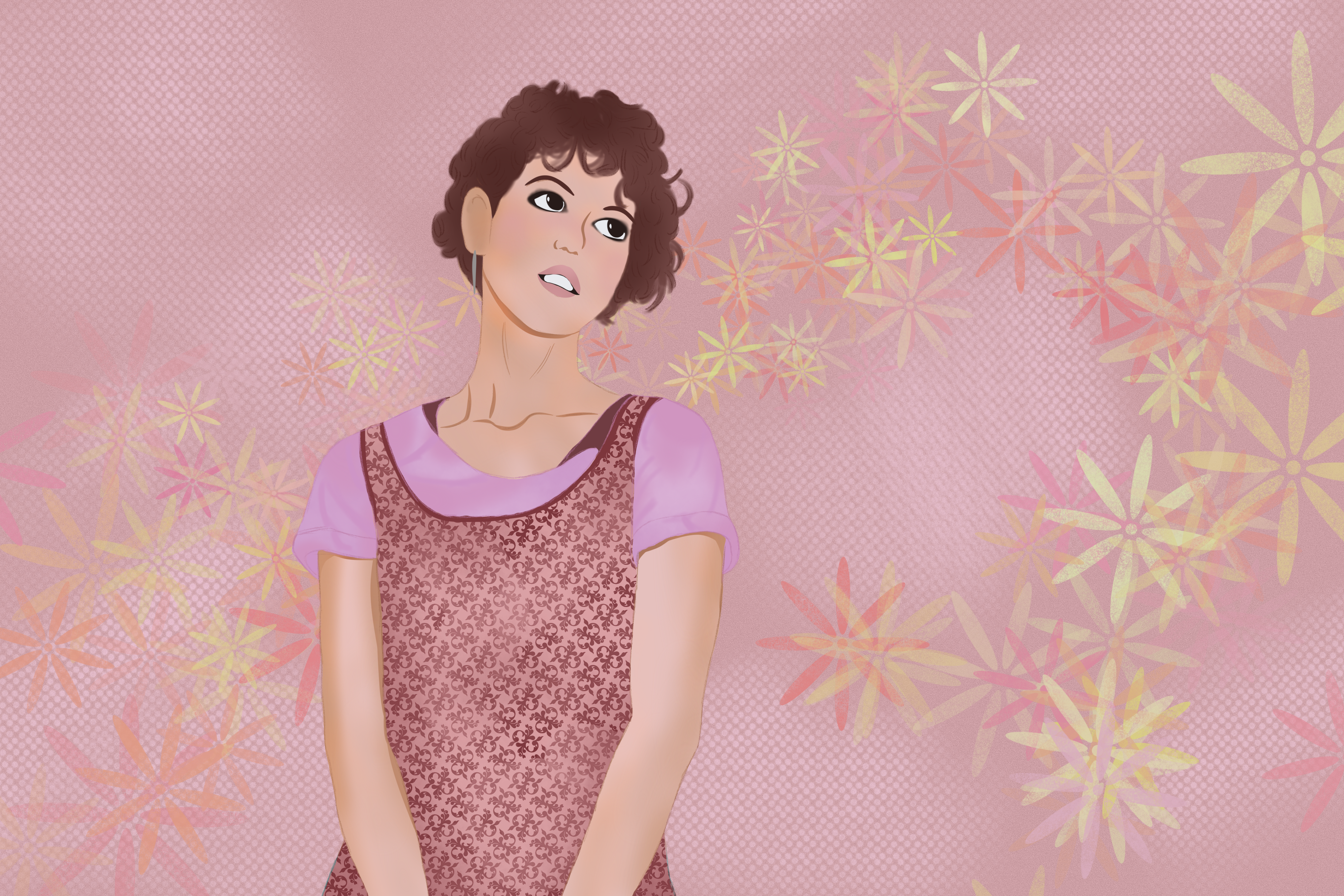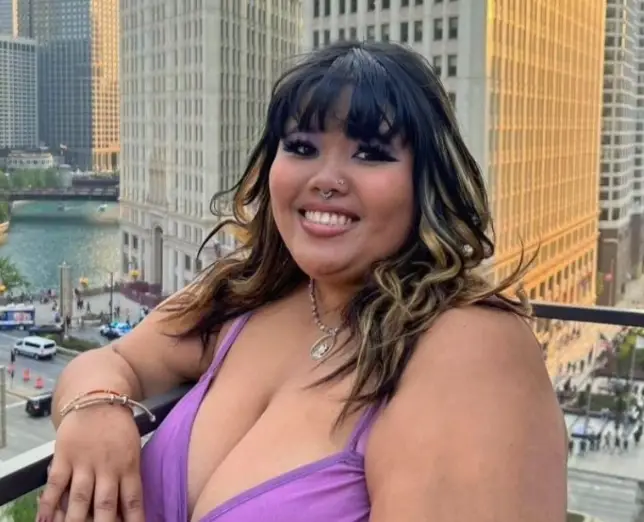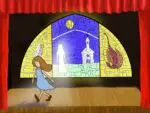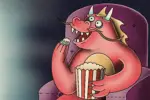CW: Sexual Assault
Perhaps one of hollywood’s most beloved 80’s stars, actress Molly Ringwald, still turns heads with her distinct fiery red hair and doe-brown eyes. Best known for her trio of John Hughes films including Sixteen Candles , The Breakfast Club, and Pretty in Pink, released from 1984-86, Ringwald’s teenage stardom marks a classic “golden age” of highschool angst, prom queen dreams and love triangles in American cinema.
Though her characters are both endearing and sassy, each one is a repetitive archetype of the last, demonstrating the flaws within the beloved 80’s Hollywood era and its well-respected filmmakers such as Hughes himself. Hughes has become such a staple and household name that schools utilize his films in academic courses as well, referencing him as a renowned filmmaker, according to Ringwald herself.
Despite the feel-good nostalgia of Hughes’ films, Ringwald also notes in a 2018 article that she holds conflicting views of her role in his films, often becoming the brunt of borderline sexual assault scenes and becoming a stereotyped image of teenage girl drama. Her own daughter refuses to watch The Breakfast Club due to its sexist treatment of Ringwald’s character and princess sweetheart Claire, who develops a relationship with the film’s bad boy highschooler Judd Nelson.
When marketing Hughes’ films to prospective highschool filmmakers, it is important to address the misogyny in Hughes’ films that limited the opportunities for accurately representing womanhood through Ringwald’s one dimensional plotlines, all of which capitalize off of teenage insecurities as a joke and excuse for toxic masculinity as well. Let’s take a look at each film in depth.
Sixteen Candles
At the tender age of 15, Ringwald began filming for her first John Hughes movie, Sixteen Candles, which follows the classic narrative of an unpopular girl’s crush on the popular highschool jock, named Jake Ryan. Ringwald’s character, Sam, pines after the chiseled jock, whose girlfriend is too much of a party animal for him, while dealing with the unwanted advances of her geeky friend Ted.
Throughout the film, Hughes paints Sam as a sweet and naive highschooler being guided into her first “love” by the older and more experienced Jake, who admires Sam for her inexperience, as she is the antithesis to his party animal girlfriend, Caroline. The age gap between Ringwald and her co-star was eight years during the production of the film, revealing an even more rattling reality to the older-guy-younger-girl trope.
Hughes romanticizes age-gap relationships between impressionable young girls while idealizing Sam’s docility by juxtaposing it with Caroline’s promiscuity. Jake becomes an accessory to her heavily implied sexual assault by Ted, who takes her home drunk and presumably has sex with her. The audience is then encouraged to laugh at her helpless situation as a sort of “payback” for Caroline’s shallow “mean girl” persona.
By victim blaming Caroline as a way to pit her undesired personality against Sam’s in the name of male validation, Hughes uses Sam as a symbol for what girls should and shouldn’t act like. If a girl is sexually assertive and dominant, she gets sexually assaulted as a “prank” payback, but if she is pure and guided by an older boy, she has a blissful and loving romance.
In the mid 80’s, only 3% of women reported their rape cases, statistics reflective of sexist films such as Hughes that encourage women to remain silent or gaslight them into thinking they’re overreacting to their sexual assault or that they deserved it for being too “frisky”. Normalizing abnormal highschool age gaps such as Sam and Jake’s relationship also ignores how these relationships often manifest into statutory rape or abusive power dynamics, as 14-15 year olds and 17-18 are at vastly different maturity and life experience levels.
In addition to rape culture, Sixteen Candles spawns another common theme in Hughes films- the “nice guy who is actually toxic” trope, but once again twists it in a manner where the “nice guy” is not toxic, just a victim of women who are blind to his good qualities.
Sam’s docility and passivity arise when she rejects “nice guy” Ted but allows him to take her underwear as a token of appreciation for hooking her up with Jake. Hughes uses Sam’s low self-esteem and respect as a comedic ploy for male audiences to laugh at while in reality, Hughes is insinuating that Sam should have low standards and be apologetic to Ted’s “nice guy” persona simply because she doesn’t return his advances. So, giving him a part of her sexuality such as underwear suffices rather than Ted respecting her feelings and still helping her meet Jake.
The “nice guy” trope, or as writer Kate Harveston says was known as the “loveable nerd” in 80’s films, has since embedded itself into more films with real world effects. She notes instances where men have been arrested for stalking women with the defense that films have taught them that relentless pursuits ultimately win their crush over. In reality, “nice guys” exemplify the same objectified misogyny as hyper-masculine jocks, but just hide it better.
Given Sixteen Candles was Ringwald’s first Hughes film, casting her as a young girl with relationships defined by men didn’t seem as troublesome until the pattern continued in her future Hughes films The Breakfast Club and Pretty in Pink. Viewers will see similar patterns of rape culture and toxic “loveable nerds”.
The Breakfast Club
In The Breakfast Club, Ringwald portrays a pompous diva named Claire serving detention with other highschool archetypes such as the jock, nerd, outcast and bad boy. The film once again pokes fun at the sexual innocence and inexperience of teenage girls, with bad boy Bender (played by a 23 year old in comparison to Ringwald being 17) interrogating a nervous and ashamed Claire on her status as a virgin despite her attempts to assert boundaries. At one point, he also slides underneath her desk with his face between her skirt nonconsensually and tries to touch her inappropriately to which Claire never reports to the principal nor reprimands him for.
Claire eventually begins a romantic relationship with Bender, who has grotesquely obvious sexist views towards women, constantly sexualizing them and insulting them throughout the film, an angsty personality used as a tool to “relate” to other misunderstood highschool boys. The problem is that normalizing rape culture for Ringwald’s character again further promotes her status as a Hollywood idol as a comedian and frivolous joke rather than allowing her characters to defy the systems of patriarchy embedded in toxic highschool rape culture.
Vox writer Constance Grady notes how Hughes’ comedic enforcement of 80’s rape culture has long lasting effects. For example, many women came out with rape allegations towards famous people such as Harvey Weinstein and politician Brett Kavanugh during the recent #MeToo movement, many of whom were dismissed due to the definitions of rape being different during the 80’s when their alleged assaults took place. 80’s films often romanticized rape culture, made jokes of it and displayed no retaliation from the female victims, as exemplified by Hughes. Therefore, women who speak up about being assaulted years later may still face the same ousting they would have faced in the 80’s.
Hughes could have had Claire and Bender become friends at the most with a better effort at holding him accountable for his sexual and verbal abuse towards her throughout the film, but chose to depict Claire as a naive diva too tempted by male validation with a need to have a dominant male partner, similar to Sam in Sixteen Candles. Simply put, Ringwald’s characters, though contrasting in highschool popularity status, still succumb to the manipulation of male love interests due to their gripping insecurities, leaving her characters with much lost potential for feminist statements.
Pretty in Pink
In her last Hughes film, Pretty in Pink, Ringwald is yet again set up against the social odds- she is lower class, geeky and unpopular yet yearns for a popular prep named Blane, whose yuppie friends constantly bully Ringwald’s character Andie and her best friend Duckie, who lives alone on the streets. Blane and Andie go on a few dates, with Blane characterized as an altruistic guy simply for not shaming Andie for living in a small home. In contrast, Andie constantly puts herself through classist situations and prejudices despite Blane’s passivity towards advocating for her against his cruel friend group. She accompanies him to rich-kid parties, is silent when Blane’s popular female friends bully her in class and doesn’t assert her need for respect in the relationship.
Of course, Blane eventually begins avoiding her because of peer pressure, leading Duckie to swoop in and try to convince Andie to be with him, the “good guy” yet again. Like Ted, Duckie actually represents another spectrum of sexism where the “nice guy” becomes angry when his niceness doesn’t automatically win him his crush. He lashes out at Andie, laments in his unfair singledom and takes no accountability for disrespecting his best friend’s boundaries, constantly harassing her with missed phone calls and blowing up when she doesn’t reply.
Such men still exist today, with a plethora of dating nightmares and concerning text messages bombarding women’s phones from angry “good guys.” The only difference is that the Andies of the modern world are harassed with phone calls and text messages.
Sixteen Candles portrays Duckie as a victim against a shallow Andie rather than allowing Andie to become a symbol of feminist empowerment in setting boundaries. She becomes disliked for rejecting him while pining for a spoiled rich kid who is embarrassed to be seen with her. Interestingly, audience members who viewed a pre-screening of the film saw a different ending where Duckie and Andie ended up together, but disliked it. Even then, 80’s audiences felt something off about the “nice guy”, so Hughes changed the script and decided to put Andie with the rich and conventionally attractive “nice guy”, Blane.
Though Blane had a minor slip up, he became the “nice guy” again through a weak character arc where he suddenly becomes a hero simply for standing up to his friends for Andie. His half-hearted preparations prove good enough for Andie’s low standards and end up in a seemingly romantic kiss and reunion at prom now that he’s no longer embarrassed to be seen with him.
Andie was perhaps the best chance Hughes had at turning a predictable narration into something more powerful, uncomfortable yet different. Andie’s story would have been far more meaningful if she had rejected Blane and Duckie in their entirety and was confident in being alone without the validation of another man.
What Now?
Fortunately, young audiences, especially women, are taking initiative to be more media literate in analyzing and being actively engaged in the films they see. The development of social media platforms has also helped women communicate with one another regarding sexual assault experiences in spaces where they aren’t censored by men. Twitter became a catalyst for popularizing the #MeToo movement, whose origins stem from 2006.
Recognizing the many women who spoke up years later regarding their sexual assaults in the 80’s and 90’s goes hand in hand with recognizing the social restraints put on them during those times due to problematic media which laughed at or victimized their experiences. When people, especially those accused of sexual assault, defend their actions by asking why women wait so long to speak out, it’s important to remember how characters such as Ringwald’s represented blurred definitions of sexual assault, sexual boundaries and seriousness. Such representations thus made it easier to victim blame and dismiss accusations of rape, silencing many women during the 80’s.
Ringwald’s characters and plotlines, though problematic, still serve as important media history to be analyzed and critiqued for future filmmakers and women in Hollywood. Rather than idolizing Hughes as a cinematic mastermind, it’s important for viewers and scholars to be able to discuss the social ramifications of his films and ponder at what needs to be changed and how.
It is possible to both adore Ringwald’s young and impressionable characters yet encourage newer viewers of her films to defy the stereotypes portrayed through Sam, Claire and Andie.

















